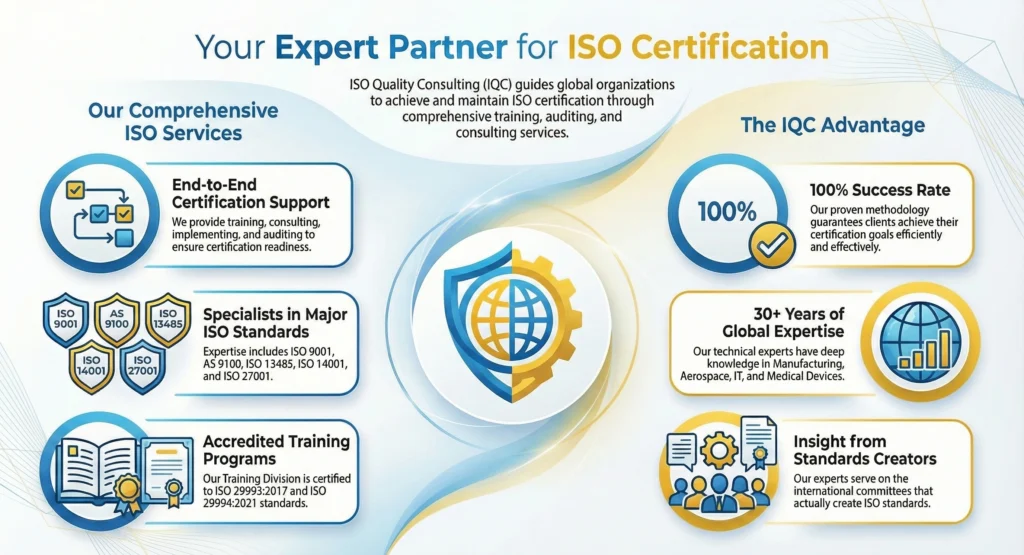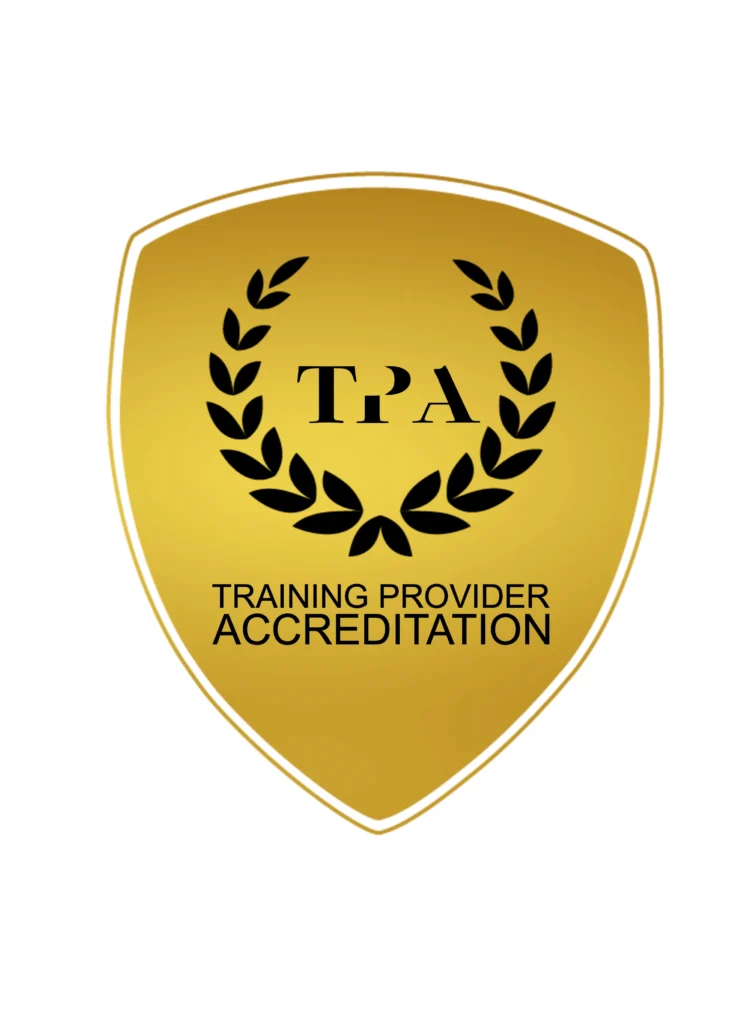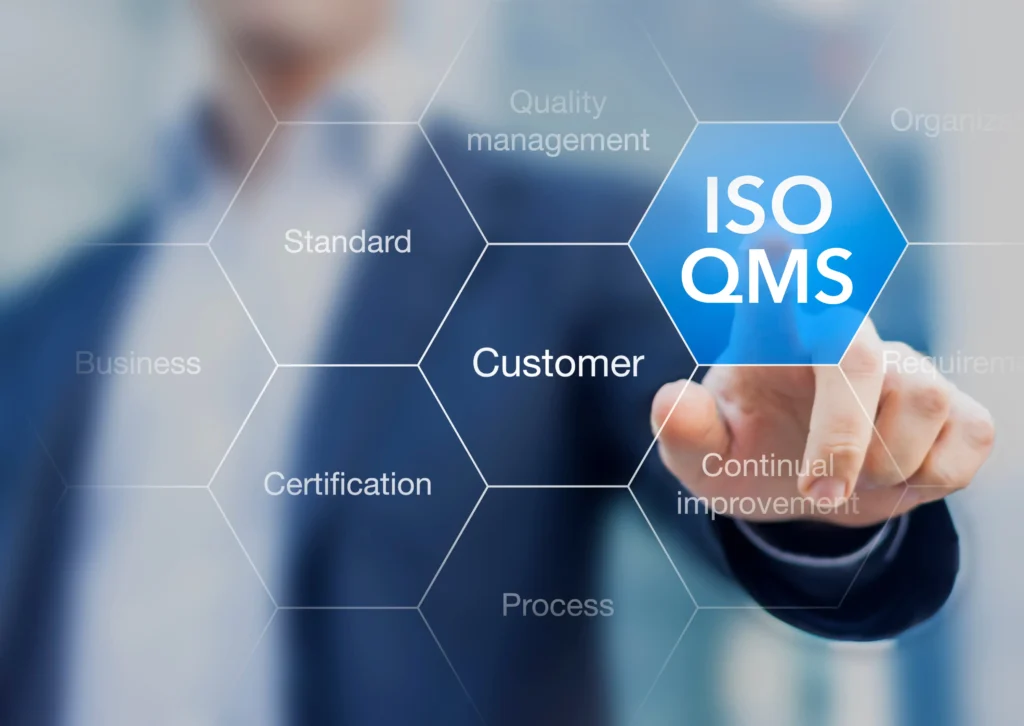Value Adding ISO Training, Auditing and Consulting Services
Build your better Tomorrow
Accredited Online COURSES to advance your career and life

FIRST OF ALL
Our Services
We specialize in ISO Management Systems such as ISO 9001, ISO 14001, ISO 45001, ISO 13485, AS 9100, AS 9110, AS 9120, ISO 27001, ISO 21001, ISO 29991, ISO 29993, ISO 29994, ISO 19011 and soon IA 9100, IA 9110, IA 9120. We provide Training, including Internal and Lead Auditor Courses, along with Auditing and Consulting services that help organizations achieve and maintain conformance with these International Standards.
Additionally, our Training Division is one of the few worldwide that is ISO 29993 and ISO 29994 Certified allowing us to provide





NOT TO MENTION
ISO Management System Certification Assistance
We help organizations achieve and maintain ISO Management System Certification.
Our team of Technical Experts are available worldwide and provide the highest level of service and expertise. They have many years of extensive knowledge and experience in various industries, including Manufacturing, Information Technology, Education, Medical, Aerospace, and Defense. They can assist with all aspects from initial gap analysis to Training, Consulting, Implementing and Auditing to assure Certification readiness and ongoing conformance. Our proven methodology has been 100% successful for organizations of all sizes and industries, ensuring that our clients achieve their certification goals efficiently and effectively.
AND LET’S NOT FORGET
Why Choose Us?
We have over 30 years of extensive knowledge, experience and competency in various industries including Manufacturing, Information Technology, Education, Medical, Aerospace, and Defense. We have the skills and ability to help your organization grow and prosper.
Additionally, many of our Technical Experts represent their countries on the international committees that create these standards so we’re up to date on what’s happening now while helping our clients prepare for what’s coming in the future.

About Us
ISO Quality Consulting is a leading provider of Training, Auditing and Consulting Services for individuals and organizations interested in becoming certified or maintaining certification to International Quality Management System Standards such as ISO 9001, ISO 14001, ISO 45001, ISO 13485, AS 9100, AS 9110, AS 9120, ISO 27001, ISO 21001, ISO 29991, ISO 29993, ISO 29994, ISO 19011 and soon IA 9100, IA 9110, IA 9120. Our team of experts have over 30 years of experience in the ISO QMS field. Many of our Technical Experts represent their countries on the international committees that create these standards.
Partner with us to Achieve or Maintain your ISO Certification.
Some of our clients

” The instructors conducted the training in a very clear, concise and fun manner, which made the subject much more enjoyable.”

” I appreciated how easily the material was communicated throughout the course. I felt no stress or intimidation because the content was not overwhelming for the time frame. The instructors were very approachable and made my experience enjoyable and comfortable.”

” Good pace. Instructors are very knowledgeable and helpful. They bring real life examples to the class and are willing to be available throughout the course to answer questions and facilitate learning.”

” Their hands on approach allowed us to immediately convert these improvements into bottom line cost savings. These people know what they’re doing and are committed to making sure we reaped all the benefits.”

” The class was very clear, well prepared and very easy to follow and understand.”
*All trademarks and copyrights, including logos, images and brand names are the property of their respective owners. References to brand names, images and logos are for descriptive purposes and their use does not imply endorsement by or association with the brand name owners.















